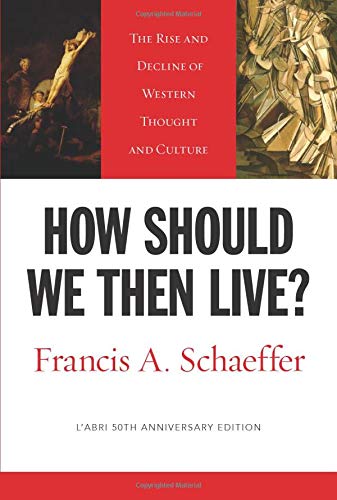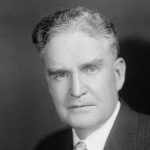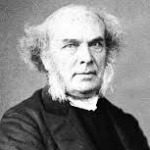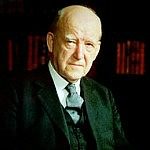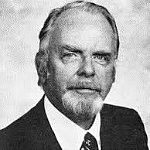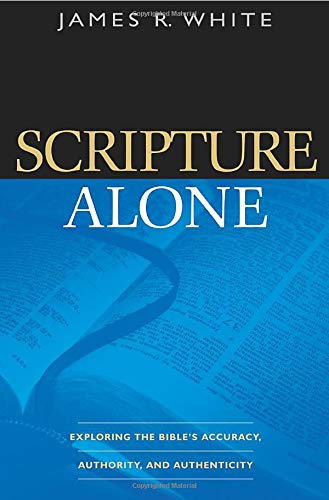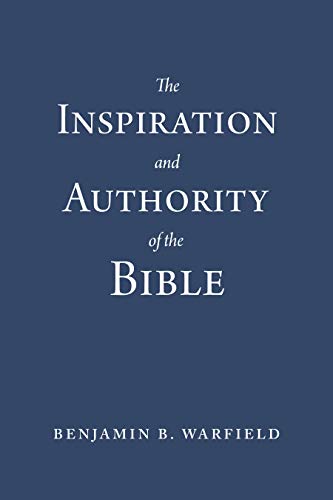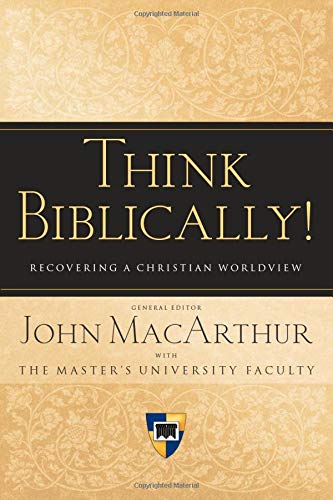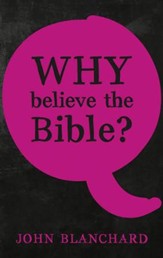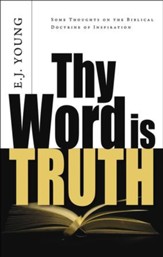Quotes about Authority-Bible
The church at Ephesus faced a culture characterized by immorality. We, too, live in a culture tolerant of sexual immorality. It is popular to be open-minded to many types of sin, calling them personal choices or alternative lifestyles. But when the body of believers begins to tolerate sin in the church, it is lowering the church’s standards and compromising its witness. Remember that God’s approval is infinitely more important than the world’s. Use God’s Word, not what people around you are willing to accept, to set the standards for what is right or wrong.
Is authority to be placed in human wisdom or cultural experience, or is it to be located in an incommensurable divine revelation that intrudes into our world from the beyond? Does it lie within the compass of what we can ordinarily discover or conceive, or does it break into our world as a new reality that overturns human imagination and conception? Is it a truth waiting to be uncovered through diligent searching, or is it a word personally addressed to us, calling us to repentance and obedience?
Taken from: A Theology of Word and Spirit © 1992,p. 185, InterVarsity Christian Fellowship/USA. Used with permission of InterVarsity Press, P.O. Box 1400, Downers Grove, IL 60515. www.ivpress.com.
It is beyond doubt that Jesus highly esteemed the Old Testament and constantly submitted to it as to an authoritative revelation. He taught that the Scriptures bore a witness to Him, just as He bore a witness to them. Because they are the words of God, Jesus assumed their complete reliability, in whole and to the smallest part.
Taken from “Foundations of the Christian Faith-Book I” by James Montgomery Boice, page 45. (c)1986 InterVarsity Christian Fellowship of the USA, Revised edition. Used by permission of InterVarsity Press, P.O. Box 1400, Downers Grove, IL 60515. www.ivpress.com http://www.gospelcom.net/cgi-ivpress/book.pl/code=991. Get this book!
We are to believe and follow Christ in all things, including His words about Scripture. And this means that Scripture is to be for us what it was to Him: the unique, authoritative, and inerrant Word of God, and not merely a human testimony to Christ, however carefully guided and preserved by God. If the Bible is less than this to us, we are not fully Christ’s disciples.
This thinking for one’s self independently of God and His revelation is not merely an evil, but a sin. Nay, it is a sin of more than common darkness – it is so audacious, so contemptuous towards God. It places man on a level with God or at least sets Divine truth and human opinion on the same footing. It strips the former of all innate authority, while it gives to the latter an authority to which it has no claim!… There can be no authority save that which is infallible and Divine, that is, God speaking to us directly in His Word.
We must not allow our emotions to hold sway over our minds. Rather, we must seek to let the truth of God rule our minds. Our emotions must become subservient to the truth.
Trusting God, 1988, p. 140. Used by permission of NavPress – www.navpress.com. All rights reserved. Get this book!
It is the Word that is “living and active and sharper than any two-edged sword” (Heb 4:12). It is the Scriptures that bear witness about Christ (John 5:39). It is the Gospel that is “the power of God for salvation” (Rom 1:16). Desire to be relevant or current must not prevail over biblical authority. Through the knowledge of the Word, the Spirit of God convicts, directs, and strengthens for Christian living.
Must Expository Preaching Always be Book Studies? TMS Journal, www.tms.edu/tmsj/tmsj2g.pdf.
Since no daily responses are given from heaven, and the Scriptures are the only record in which God has been pleased to consign His truth to perpetual remembrance, the full authority which they ought to possess with the faithful is not recognized unless they are believed to have come from heaven as directly as if God had been heard giving utterance to them.
[If] preachers wish to preach with divine authority, they must proclaim this message of the inspired Scriptures, for the Scriptures alone have divine authority. If preachers wish to preach with divine authority, they must submit themselves and echo the Word of God. Preachers are literally to be ministers of the Word.
The authority of Scripture means that all the words in Scripture are God’s words in such a way that to disbeliever or disobey any word of Scripture is to disbelieve or disobey God.
Systematic Theology, Zondervan, 1994, p. 73. Used by Permission.
Get this book!
The subject of spiritual experience is at the forefront of thinking in evangelicalism worldwide today. A clear line of division can be drawn between those who insist that the Bible must be the basis by which all spiritual experience is tested and those who regard experience as pre-eminent and resist the tests of Scripture. Is the Word our authority, or is spiritual experience our authority? The Puritans were strong in the area of knowing God by heart experience but they sought to test everything by Scripture. We do well to follow their example.
First of all, the evangelical is one who is entirely subservient to the Bible… This is true of every evangelical. He is a man of one book; he starts with it; he submits himself to it; this is his authority.
Here it is, plain and unvarnished. Unless I am convinced of error by the testimony of Scriptures or…by manifest reasoning I stand convicted by the Scriptures to which I have appealed, and my conscience is taken captive by God’s Word, I cannot and will not recant anything… On this I take my stand. I can do no other. God help me.
The authority of Scripture is greater than the comprehension of the whole of man’s reason.
Situation ethics is ungodly ethics. God’s Word, not a given human situation, determines what is right and wrong. Christians do not make truth; and a group of believers, no matter how large or influential – even if they were to be apostle – who take a wrong position or indulge in a wrong practice are still wrong. Neither expediency falsely defined love, nor majority vote have any bearing on truth and righteousness.
The church can affirm the authority of Scripture, but it cannot be the ultimate witness to it… That proof must be the testimony of Scripture itself.
God’s Word by John MacArthur and Richard Mayhue taken from Biblical Doctrine by John MacArthur and Richard Mayhue, copyright 2017, Crossway Books, a division of Good News Publishers, Wheaton Illinois 60187, www.crosswaybooks.org. Page 103.
The outworking of God’s authority in Scripture: It is not derived authority bestowed by humans; rather, it is the original authority of God. It does not change with the times, the culture, the nation, or the ethnic background; rather, it is the unalterable authority of God. It is not one authority among many possible spiritual authorities; rather, it is the exclusive spiritual authority of God. It is not an authority that can be successfully challenged or rightfully overthrown; rather, it is the permanent authority of God. It is not a relativistic or subordinate authority; rather, it is the ultimate authority of God. It is not merely a suggestive authority; rather, it is the obligatory authority of God. It is not a benign authority in its outcome; rather, it is the consequential authority of God.
God’s Word by John MacArthur and Richard Mayhue taken from Biblical Doctrine by John MacArthur and Richard Mayhue, copyright 2017, Crossway Books, a division of Good News Publishers, Wheaton Illinois 60187, www.crosswaybooks.org. Page 107.
The preacher needs to realize that God’s Word is not the preacher’s word. He is to recognize himself as a messenger, not an originator (1 Thess. 2:13). He is a sower, not the source (Matt. 13:3, 19). He is a herald, not the authority (1 Tim. 2:7). He is a steward, not the owner (Col. 1:25). He is the guide, not the author (Acts 8:31). He is the server of spiritual food, not the chef (John 21:15, 17).
God’s Word by John MacArthur and Richard Mayhue taken from Biblical Doctrine by John MacArthur and Richard Mayhue, copyright 2017, Crossway Books, a division of Good News Publishers, Wheaton Illinois 60187, www.crosswaybooks.org. Page 133.
When the Word of God is not set up as the supreme authority, division is inevitable. Such happens even in evangelical churches, when pastors and other leaders begin substituting their own ideas for the truths of Scripture. The substitution is seldom intentional, but it will always happen when the Bible is neglected. A Bible that is not studied carefully cannot be followed carefully. And where it is not followed there will be division, because there will be no common ground for beliefs and practices. When the truth of Scripture is not the sole authority, men’s varied opinions become the authority.
If the Bible doesn’t mean exactly what it says, if we say it doesn’t mean what it says, then to what authority do we turn to find out what it does mean?
Divine Compassion for Those Deserving Condemnation. The sermon originally appeared (https://www.gty.org/library/sermons-library/42-191/divine-compassion-for-those-deserving-condemnation-part-5) at www.gty.org. © 1969-2008. Grace to You. All rights reserved. Used by Permission.
God’s Word is not up for review, debate, or editing. In the words of the psalmist, “Forever, O Lord, Your word is settled in heaven” (Psalm 119:89). Scripture doesn’t pass away, go out of date, or drift out of relevance. No one has the right to redact it, question its pertinence, or set it aside in favor of something more culturally sensitive or socially acceptable. It is flawless and perpetually true and thus the source of all praise and honor given to the Lord.
“We think with our feelings,” Sinclair Ferguson has said. It’s true. We allow our feelings to guide our thinking and we shouldn’t. Emotions are a wonderful gift from God. And our relationship with God should bring to our lives strong godly affections. However, our emotions shouldn’t be vested with final authority. This should be reserved for God’s Word alone.
The Cross Centered Life, 2002, Used by permission of Sovereign Grace Ministries, p. 48.
The Bible was the only book Jesus every quoted, and then never as a basis for discussion but to decide the point at issue.
From the Garden of Eden, to the experience of Job, to the temptation of the Lord Jesus Christ, to the present day, Satan has tried to move man away from submission to the authority of God and His Word. If he cannot do it through direct enticement or challenge, he will attempt to do it through all manner of subtlety and deception. That is why one must be careful not to embrace new revelations that come through any avenue: impressions, intuition, visions, dreams, tongues, or prophecy. As noted previously, such undermine both the authority and sufficiency of Scripture.
Charismatic Challenge by John Napier, Providence House Publishers, 2003, p. 112. Used by permission. All rights reserved.
“The Word (i.e., Jesus) is what matters, not the Word (i.e., the Bible).” As pious as that sounds, it takes a different view of the Word than the Word Himself. Jesus repeatedly quotes the Bible as completely trustworthy and as His final authority.
Scripture – How the Bible is Like No Other by Andy Naselli, taken from Don’t Call it a Comeback, edited by Kevin DeYoung, copyright 2011, Crossway Books, a division of Good News Publishers, Wheaton Illinois 60187, www.crosswaybooks.org, p. 68.
[The Bible] does not merely conform to a higher standard of truth; the Bible itself is the standard of truthfulness.
Scripture – How the Bible is Like No Other by Andy Naselli, taken from Don’t Call it a Comeback, edited by Kevin DeYoung, copyright 2011, Crossway Books, a division of Good News Publishers, Wheaton Illinois 60187, www.crosswaybooks.org, p. 62.
If you can’t fully trust the Bible when it discusses science and history (secondary matters that can be verified), how can you trust it when it talks about God and salvation (supremely important matters that we can’t verify in the same way)? If you can’t trust the Bible, then you can’t trust God. If you don’t trust God, then you’ve exalted yourself as the ultimate authority instead of God.
Scripture – How the Bible is Like No Other by Andy Naselli, taken from Don’t Call it a Comeback, edited by Kevin DeYoung, copyright 2011, Crossway Books, a division of Good News Publishers, Wheaton Illinois 60187, www.crosswaybooks.org, p. 63.
“Evangelicals derive their doctrine of the Bible from the Bible. Isn’t that circular reasoning?” Well, yes, but that doesn’t necessarily invalidate the reasoning. Our doctrine of the Bible is no more circular than scientific theories. Everyone uses circular reasoning to defend the ultimate authority for beliefs. While the ultimate standard of truth for evangelicals is God and His Word, for most others it is something else – usually themselves. The heated debates about whether the Bible is God-breathed and without error hinge on one issue: whether you accept what the Bible claims about itself. Many useful arguments show that the Bible’s claims about itself are reasonable (e.g., its historical reliability and fulfilled prophecies), but ultimately God’s Spirit must convince us that its claims are true because sin has distorted how we perceive reality. We can’t prove that the Bible is God’s Word by appealing to any authority besides the Bible itself because such an authority must be superior to God – and there isn’t one.
Scripture – How the Bible is Like No Other by Andy Naselli, taken from Don’t Call it a Comeback, edited by Kevin DeYoung, copyright 2011, Crossway Books, a division of Good News Publishers, Wheaton Illinois 60187, www.crosswaybooks.org, p. 68.
How can I tell if my trust in the Lord is wholehearted? One way is this. Do I let the Bible overrule my own thinking? It says, “Do not lean on your own understanding” [Pr. 3:5]. So, do I agree with the Bible, or do I obey the Bible? If I merely agree with the Bible, then my positive response is not obedience but coincidence. The Bible just happens to line up with the prejudices I’ve soaked up from my background. But what do I do when the Bible contradicts what I want to be true — especially when, on top of that, it seems culturally remote and perplexing? If I’m reading the Bible for excuses for what I want anyway, my heart has already drifted from the Lord. But if I trust Him wholeheartedly, I will let the Bible challenge my most cherished thoughts and feelings.
Blog Post: Wholehearted Trust Accepts Authority, December 5, 2011, Used by Permission.
We must not in practice deny our allegiance to the authority of the Word of God by saying we believe it while continuing to live according to what is right in our own eyes.
Burk Parsons Questionable Authority, Tabletalk, March, 2009, p. 2. Used by Permission.
We’ve already seen how sin began when God’s command was reduced to a question [Gen. 3:1]. At that moment the most deadly spiritual force was covertly smuggled into the world: the assumption that God’s Word is subject to human judgment.
Taken from Counter Culture, Copyright © 2015 by David Platt. Used by permission. Website: Radical.net. Page 168.
The true Christian was intended by Christ to prove all things by the Word of God, all churches, all ministers, all teaching, all preaching, all doctrines, all sermons, all writings, all opinions, all practices. These are his marching orders. Prove all by the Word of God; measure all by the measure of the Bible; compare all with the standard of the Bible; weigh all in the balances of the Bible; examine all by the light of the Bible; test all in the crucible of the Bible. That which cannot abide the fire of the Bible, reject, refuse, repudiate, and cast away. This is the flag which he nailed to the mast. May it never be lowered!
The clear commands in the Bible trump the prerogatives of society, the power of feelings, the precedence of experience and the persuasiveness of others.
The Word of God never returns empty handed, frustrated, and defeated. It always, and without exception, accomplishes the pleasure of the sovereign God because He has decreed that His divine plan shall prosper in each single detail (Isa. 55:11; Acts 13:48).
The idea of sola Scriptura is that there is only one written source of divine revelation, which can never be placed on a parallel status with confessional statements, creeds, or the traditions of the church. Scripture alone has the authority to bind the conscience precisely because only Scripture is the written revelation of almighty God.
The Bible alone is the only authority that can bind the conscience of a person absolutely because it is the only authority that carries with it the intrinsic authority of God Himself.
R.C. Sproul The Divine Foundation of Authority, Tabletalk, March, 2009, p. 7. Used by Permission.
There is nothing so deluding as feelings. Christians cannot live by feelings. Let me further tell you that these feelings are the work of Satan, for they are not right feelings. What right have you to set up your feelings against the Word of Christ.
The inspiration and authority of the Bible is the bedrock upon which our faith is built. Without it, we are doomed to uncertainty, doubt, and a hopeless groping in the darkness of human speculation.
Special Revelation I, November 8, 2006, www.enjoyinggodministries.com. Used by Permission.
Jesus himself clearly believed in the inspiration and authority of Scripture. Being a disciple of Jesus entails not only doing what Jesus did but also believing what Jesus believed. It is impossible to accept the authority of Christ without also accepting the authority of Scripture. To believe and receive Jesus as Lord and Savior is to believe and receive what He taught about Scripture.
Special Revelation I, November 8, 2006, www.enjoyinggodministries.com. Used by Permission.
Our claim is that God has revealed Himself by speaking; that this divine (or God-breathed) speech has been written down and preserved in Scripture; and that Scripture is, in fact, God’s Word written, which therefore is true and reliable and has divine authority over men.
The ultimate issue in question is the authority of the Bible over our lives. Who is in charge? Who gets the final word? And the way that men (even saved but sinful men) avoid God’s authority is through autonomy: a self-determination that pursues self-sufficiency producing self-rule. It may not be an “intentional” self-determination – indeed we may be unthinkingly swept along by the influences of our culture – but the outcome is the same: a self-sufficiency (in place of God’s sufficiency through His Word) that results in self-rule.
The Sufficiency of Scripture: By What Standard? April 3, 2003, www.visionforumministries.org, Used by Permission.
The revelatory process ceased with the sixty-six books in the Old and New Testaments which contain exactly what God wanted us to have. Our Lord told His disciples that, after His ascension, He would send the Holy Spirit who would guide them (the disciples present) into ALL the truth (John 16:7, 13; 14:26). These were the men who, under the supernatural inspiration of the Holy Spirit, would finalize the writing of the New Testament. Paul said that when the “perfect” comes (i.e., the completed New Testament revelation), prophecy and other modes of revelation would cease (1 Cor. 13:8-12). It is a fact of history that divine revelation did cease when the last Apostle died. So, with a complete and final revelation in hand, where should we look to find the mind and will of God for His people? Not to modern-day prophecies, nor to signs and wonders, nor to inner promptings and experiences, but to Scripture ALONE!
The Sufficiency of Scripture: By What Standard? April 3, 2003, www.visionforumministries.org, Used by Permission.
Authority resides in God’s inspired Word (the Bible) interpreted by God’s Spirit operating through Spirit-taught human agents.
Holy Scripture, being God’s own Word, written by men prepared and superintended by His Spirit, is of infallible divine authority in all matters upon which it touches: it is to be believed, as God’s instruction, in all that it affirms; obeyed, as God’s command, in all that it requires; embraced, as God’s pledge, in all that it promises.
God speaks in the Scriptures, and by it teaches the Church herself; and therefore His authority in the Scriptures is greater, the authority of Him that teaches, than of those by whom He teaches as the authority of a king in his law is greater than that of an officer that proclaims them.
A Puritan Golden Treasury, compiled by I.D.E. Thomas, by permission of Banner of Truth, Carlisle, PA. 2000, p. 56.
The church’s unique, God-given purpose does not lie in political activism. Nowhere in Scripture do we have the directive to spend our energy, our time, or our money in governmental affairs. Our mission lies not in changing the nation through political reform, but in changing hearts through the Word of God. When believers think the growth and influence of Christ can somehow be allied with government policy, they corrupt the mission of the church. Our Christian mandate is to spread the gospel of Christ and to preach against the sins of our time. Only as the hearts of individuals in a culture are changed by Christ will the culture begin to reflect that change.
Got Questions? How should a Christian view politics? www.GotQuestions.org. Used by Permission.
We may not consider any writings of men, however holy these men may have been, of equal value with the divine Scriptures, nor ought we to consider custom or the great multitude, or antiquity, or succession of times and persons, or councils, decrees or statutes, as of equal value with the truth of God, since the truth is above all; for all men are of themselves liars and lighter than vapor.
If Jesus knew that Scripture contained human error yet never made this fact known to His followers, misleading them rather by His insistently positive attitude toward it, He can hardly qualify as a great moral teacher and the incarnate God of truth.
The supreme judge by which all controversies are to be determined, and all decrees of councils, opinions of ancient writers, doctrines of men, and private spirits, are to be examined, and in whose sentence we are to rest, can be no other but the Holy Spirit speaking in the Scripture.
The Bible claims for itself a singular and final authority concerning all matters it addresses. No other instructions, written or verbal, represent a higher or even equal authority. This authority was not granted to God at one of the historical councils of the church; God does not need men to agree with Him or determine the extent of His authority. The Scriptures carry ultimate authority for one reason: They are the words of the sovereign Ruler of the universe.
The Bible is God’s Special Revelation, Christian Communicators Worldwide, www.CCWtoday.org. Used by Permission.
As far as the apostles were concerned, they were as weak as any other men. They were uneducated, very ordinary men. Yet they are given this privileged position: they will deliver the Word of God through the Son to the world. From God the Father, through the Son, through the Spirit, and through the apostles to the world. In this sense, the apostles are “foundational” to the church… Theological and ethical instruction from the apostles is universally binding. Indeed, it is “from God to us.”
Recommended Books
